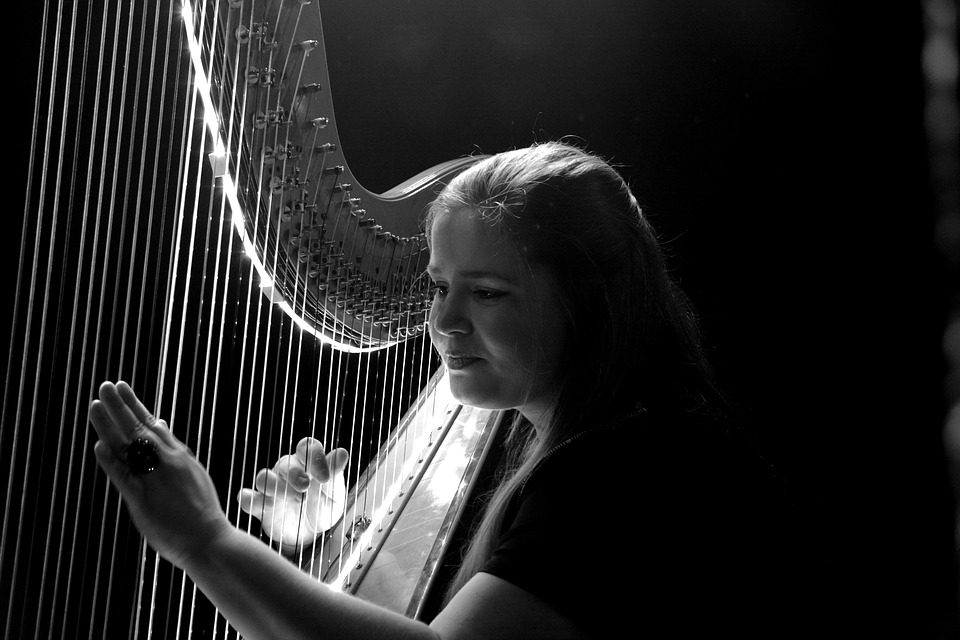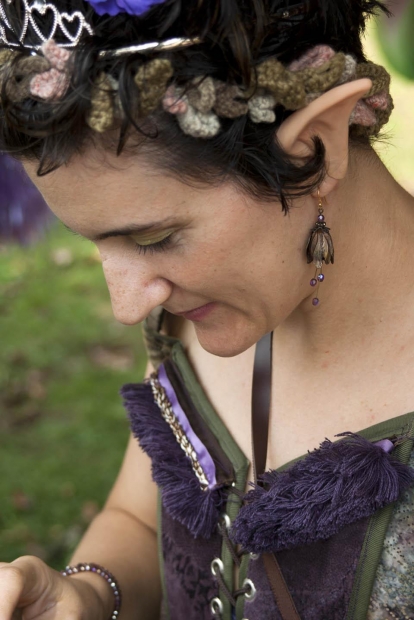Have you ever wanted to play a bard at a LARP (live action role playing game)? This seems like a natural choice, especially if you love to sing, dance, act or recite poetry. If you’re ready to take on or improve this role, how should you prepare?
Practice Your Craft
In some ways, performing at a LARP is no different than performing in real life. It requires practice and expression. Even though many games will allow you to learn certain spells or compositions to present in-game effects with each performance, you still need to captivate your audience and hold their attention. The more prepared you are, the more confident you’ll be.
If you’re comfortable with it, you can also practice while you are at your game. My bard takes her profession very seriously. She is never idle. If she isn’t interacting with others, she is working on a song or composing a poem. This allows me to ‘level up’ my real life abilities along with my character.
Play an Instrument
If you play at a game with multiple bards, you’ll soon realize that most bards simply do one thing – and that’s usually singing. You’ll stand out from the rest if you play an instrument. A hand drum is the simplest instrument to learn. If you have trouble singing and playing at the same time, ask someone else to accompany you, whether with a drum or by clapping or stomping on the floor.
Prepare Multiple Skills
Even if you’re best at singing or playing a specific instrument, try branching out. I started out only singing as my bard character, and that’s still what I do, primarily. However, I have also learned how to tell a good story, recite a poem effectively and even joke around.
Have a piece ready for every occasion. An effective bard will be missed when he or she is absent. A prepared bard is ready to sing at all occasions, whether they are pre-planned or not.
Examples include:
- War
- Peace
- Weddings
- Births
- Funerals/deaths
- Boosting morale
- Birthdays
- Feasts
- Seasons
- Festivals and ceremonies
Understand How a Bard Functions in Your Game
Different types of bards function in every game differently. It depends upon what kind of effects your bard can enact in game. I’ve also learned that when my role playing is of a higher quality, it engages the same in the audience; I do not necessarily need to expend an in game ability to achieve the desired result.
In most game settings, whether you’re at a war camp, medieval tavern or around a campfire guarding against zombies, bards are the only available entertainment. This function becomes more valuable and appreciated when people aren’t constantly inundated with media at their fingertips. If you are playing in a modern or futuristic era and want to keep your audience’s attention, consider leveraging the Internet – give your bard her own blog or YouTube channel. This will make the experience more immersive.
Consider Your Song Selections and Check the Rules of the Game
Certain games have restrictions on what type of poems or songs you can perform. Remember, your songs must fit in with the game setting to complement the immersive experience.
That said, I only perform a few actual medieval or renaissance era songs at a medieval fantasy game. I use a blend of original compositions (also easier for me to memorize) and less known McCartney solo songs, many of which are timeless and melodic. If you’re retrofitting a contemporary song for a medieval fantasy setting, make sure you replace all place names and anachronistic items (cars, phones).
Team Up!
Playing a bard is more fun when you perform with others. Plus, you can combat in game downtime by working on songs and stories during the game.
Playing a bard is rewarding for me because it allows me to enhance others’ immersion, set the mood in a room and provide buffs for others (this is a function of a bard at Seventh Kingdom IGE).
Why do you enjoy playing a bard? Please leave your comments below.
This post was originally published on Examiner.com





